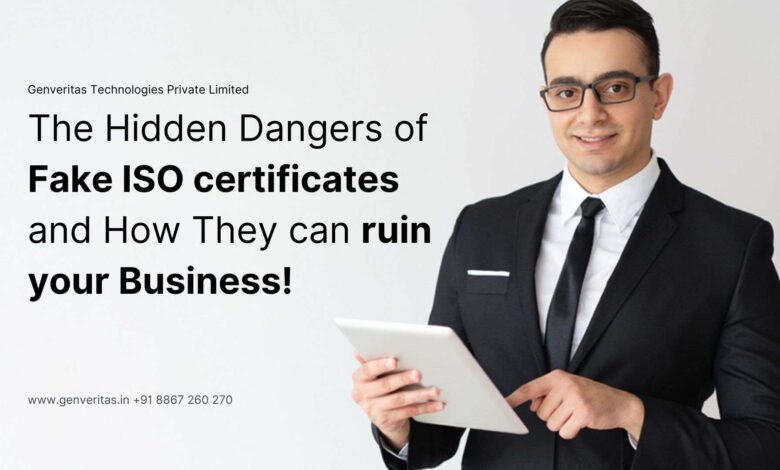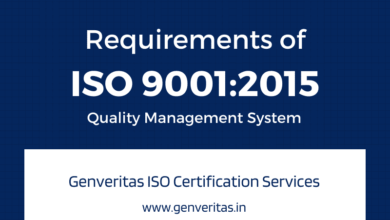Dangers of Fake ISO Certificates

Introduction
In today’s competitive business landscape, obtaining ISO certifications has become a hallmark of quality and credibility. However, the allure of these certifications has also given rise to a disturbing trend: the proliferation of fake ISO certificates. These fraudulent documents not only deceive consumers but also pose a significant threat to the growth and reputation of businesses.
Understanding ISO Certifications
ISO certifications, such as ISO 9001 (Quality Management System), ISO 14001 (Environmental Management System), and ISO 27001 (Information Security Management System), are internationally recognized standards that attest to a company’s adherence to specific quality, environmental, or security requirements. They serve as a valuable tool for businesses to demonstrate their commitment to excellence, enhance customer trust, and open doors to new opportunities.
The Allure of Fake ISO Certificates
The appeal of fake ISO certificates is undeniable. They offer businesses a quick and easy way to claim credibility without the effort and expense of undergoing a rigorous certification process. For some, the perceived benefits outweigh the ethical implications. However, the reality is that these fraudulent documents are nothing more than a mirage.
The Negative Consequences of Fake ISO Certificates
- Damaged Reputation: When a business is caught using a fake ISO certificate, it suffers irreparable damage to its reputation. Trust is a cornerstone of business success, and a fraudulent certification undermines that trust.
- Legal Ramifications: Issuing or using fake ISO certificates is illegal in many jurisdictions. Businesses that engage in such activities can face severe penalties, including fines and legal action.
- Loss of Business Opportunities: Genuine ISO certifications can open doors to new business opportunities, partnerships, and tenders. However, fake certificates can hinder these prospects. Clients and partners may be hesitant to work with a company that has a tainted reputation.
- Undermining Industry Standards: The proliferation of fake ISO certificates dilutes the value of genuine certifications. It creates a level playing field where companies that have invested time and resources in obtaining legitimate certifications are disadvantaged.
Protecting Your Business from Fake ISO Certificates
To safeguard your business from the risks associated with fake ISO certificates, it is essential to:
- Verify Certifications: Always verify the authenticity of ISO certificates by contacting the certifying body directly.
- Conduct Due Diligence: Research potential partners and suppliers to ensure they have legitimate certifications.
- Educate Employees: Inform your employees about the dangers of fake ISO certificates and the importance of maintaining ethical business practices.
- Support Industry Initiatives: Advocate for measures to combat the issuance and use of fake ISO certificates, such as stricter regulations and increased awareness campaigns.
Conclusion
While fake ISO certificates may offer a tempting shortcut to perceived credibility, the long-term consequences can be devastating. By understanding the risks and taking proactive measures to protect their businesses, companies can avoid the pitfalls of these fraudulent documents and maintain their reputation in the marketplace





